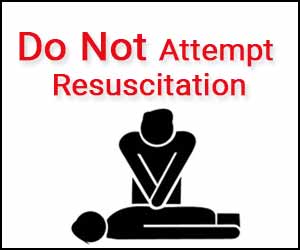- Home
- Medical news & Guidelines
- Anesthesiology
- Cardiology and CTVS
- Critical Care
- Dentistry
- Dermatology
- Diabetes and Endocrinology
- ENT
- Gastroenterology
- Medicine
- Nephrology
- Neurology
- Obstretics-Gynaecology
- Oncology
- Ophthalmology
- Orthopaedics
- Pediatrics-Neonatology
- Psychiatry
- Pulmonology
- Radiology
- Surgery
- Urology
- Laboratory Medicine
- Diet
- Nursing
- Paramedical
- Physiotherapy
- Health news
- Fact Check
- Bone Health Fact Check
- Brain Health Fact Check
- Cancer Related Fact Check
- Child Care Fact Check
- Dental and oral health fact check
- Diabetes and metabolic health fact check
- Diet and Nutrition Fact Check
- Eye and ENT Care Fact Check
- Fitness fact check
- Gut health fact check
- Heart health fact check
- Kidney health fact check
- Medical education fact check
- Men's health fact check
- Respiratory fact check
- Skin and hair care fact check
- Vaccine and Immunization fact check
- Women's health fact check
- AYUSH
- State News
- Andaman and Nicobar Islands
- Andhra Pradesh
- Arunachal Pradesh
- Assam
- Bihar
- Chandigarh
- Chattisgarh
- Dadra and Nagar Haveli
- Daman and Diu
- Delhi
- Goa
- Gujarat
- Haryana
- Himachal Pradesh
- Jammu & Kashmir
- Jharkhand
- Karnataka
- Kerala
- Ladakh
- Lakshadweep
- Madhya Pradesh
- Maharashtra
- Manipur
- Meghalaya
- Mizoram
- Nagaland
- Odisha
- Puducherry
- Punjab
- Rajasthan
- Sikkim
- Tamil Nadu
- Telangana
- Tripura
- Uttar Pradesh
- Uttrakhand
- West Bengal
- Medical Education
- Industry
To CPR or NOT to CPR: ICMR releases draft position paper on DNAR for doctors

New Delhi: To resuscitate a patient, sometimes becomes a serious ethical dilemma for medical practitioners. For patients with incurable long term illness or living on the end of life care, resuscitation only adds to their prolonged illness and misery of the patient.
While many western countries have the concept of "Do Not Resuscitate" or DNR in place, a similar concept has been till now in a very nascent stages in India
A meeting regarding Consultation on “Do Not Attempt Resuscitation” (DNAR) was held yesterday at ICMR headquarters under the chairmanship of Prof. Balram Bhargava Secretary Department of Health Research and DG ICMR.
The meeting was attended by National President of Indian Medical Association, ICMR Central Ethics Committee on Human Research and about 60 – 70 stakeholders including senior administrators, clinicians, Directors, Critical Care physicians, palliative care, nursing, hospice case, social scientists, Patient right groups, NGO’s, ethicists, theologians, religious representatives, hospital accreditation board, industry, journal editors, public health experts, health care workers, patient and public representatives, Ethics committee members, Government departments, World Health Organization and communication media persons to discuss clinical, Legal and Societal aspects of DNAR document.
ICMR has drafted a position paper on ‘Do Not Attempt Resuscitation (DNAR)’ with the help of a multi-disciplinary team of experts, which would guide treating physicians to take the decision whether or not to perform the Cardiopulmonary Resuscitation (CPR) on the background of incurable disease where the patient’s chances of survival are extremely low.
CPR is performed as a part of the medical treatment in such patients in an effort to revive them. However, death is inevitable in certain situations at the terminal stage of disease, and providing CPR may only increase the suffering of such patients. The main purpose of the document is to not prolong the suffering of the patient, preserve the dignity in death and to preserve the mutual trust and respect between the treating physicians and patients. It facilitates the process of informed decision making ensuring discussion, opportunity for a clear understanding in private about DNAR and its implications.
The document highlights that the treating physician should deliver complete information to patient/ surrogate to enable them to understand the implications of CPR in the context of the incurability of the disease and the almost impossible chance of meaningful survival or quality of life, and to understand about DNAR.
The document also provides an algorithm for DNAR decision making which would guide the physicians in making the right decisions about treatment on case to case basis. It also stresses about the importance of continuing supportive and compassionate care of the patient. The patient/ surrogate information sheet in the document clarifies the terminologies that have been used to explain in simple words how the decisions would be arrived at by the physician. The document also has a one page DNAR form on which the wishes of the patient/ surrogate/ and physician would be recorded.
Read Also: Key takeaways from ICMR draft guideline on 'Do Not Attempt Resuscitation'
During the meeting Prof. Bhargava said, “Doctors would benefit from a guidance document to be able to discuss with their terminally ill patients on decisions related to do not attempt resuscitation”.
Dr. Prashant Mathur, Director NCDIR Bangalore said, “Implementation of the Do Not Attempt Resuscitation (DNAR) guidelines will require improved communication skills between doctors and patients/ family members to reassure good medical and compassionate care”.
Dr. Roli Mathur, Head ICMR Bioethics Unit said, “This is an open national consultation and the call was posted on ICMR website to any patient or public representative to freely register and participate so that they can also have a voice in policy development”.
The document is the consequence of the efforts put in by a group of experts to help overcome the increasing psychological, emotional and financial burden on the patients and their families. The position paper will be finalized for release based on the inputs from the national consultation.
Read Also: Key takeaways from ICMR draft guideline on 'Do Not Attempt Resuscitation'
Medical Dialogues Bureau consists of a team of passionate medical/scientific writers, led by doctors and healthcare researchers. Our team efforts to bring you updated and timely news about the important happenings of the medical and healthcare sector. Our editorial team can be reached at editorial@medicaldialogues.in.


